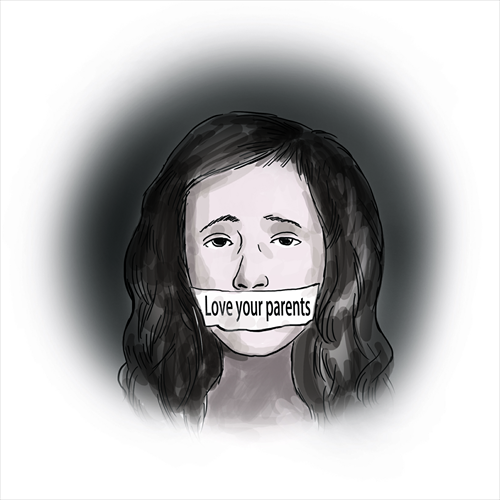Some parents are monsters, not saints

Illustration: Liu Rui/GT
"Filial piety" has been a worry in Chinese society since Confucius' day. Every generation seems to be concerned that kids don't respect their parents anymore, and to pass laws or create dramatic stories that reinforce the message that parents are everything. But for abused children, these stories are just another source of pain.
For this generation of parents, faced with a society in flux, and carrying their own guilt about the attacks on filial piety during the Maoist era, this is a particularly fraught issue. Chinese culture is full of idioms about parents sacrificing everything for children. And most parents find the idea of deliberately hurting our own children inconceivable. But there are plenty of parents, from the mentally ill to the far-too-young to the outright sociopathic, who do terrible damage to their children.
I'm not talking here about the usual pressures and generational gaps in Chinese culture. That's a serious problem too, but it's one that arises out of genuine, if often misplaced, devotion to kids. I'm talking about outright physical and sexual abuse, which is far more common than is comfortable to think about.
Across the world, nearly 20 percent of girls, and 8 percent of boys, are sexually abused as children, according to one 2009 meta-survey. The Chinese media have recently started to give greater coverage to cases of sexual assault by authority figures, from officials to teachers. But statistics show that sexual abuse within the family makes up a third of cases - most commonly of all, fathers abusing their daughters. This is a disturbing truth that remains almost taboo within the Chinese media.
Physical abuse is also common. There are contentious cultural issues regarding the acceptability of hitting children, though the strong consensus among Western psychological organizations is that any form of striking kids brings negative effects. But there are plenty of kids today who bear the scars of far worse abuse than a sharp slap for a bad school report, from being beaten with electric wire to burnt with hot irons.
When we tell kids that they should respect their parents, no matter what their parents do, perhaps we mean well. But we also reinforce a culture of silence. Abusive parents frequently tell their victims that the abuse is for their own good, that it's a secret, or that nobody will believe them if they tell.
When the only message kids hear from the rest of society is that parents are near-divine, the abusers' lies have an even tighter grip.
A few abuse survivors find value in eventually forgiving, and even reconciling, with their abusers as adults. But for most, cutting off ties entirely is the best path to healing. For them, to hear that this makes them "unfilial" or wicked is just rubbing salt in the wound. Under China's rarely enforced filial support laws, an abused daughter could even find herself in the position of paying for the upkeep of the father who raped her.
Messages of filial piety also reinforce the idea that children are parents' property, and that society has no business interfering inside the home. But when children are in danger, society needs to step in. China is seriously lacking in child protective agencies, but cultural and media shifts are an important first step in creating a society that looks out for kids.
It's important for dramas, both for kids and adults, to show examples of abusive families as well as loving ones, so that abused children receive the message that they aren't alone, that there can be help for them, and, most of all, that their parents' actions are wrong.
"Love your parents" might be a good message sometimes. But it has to be tempered with an understanding that not all parents deserve that love.
The author is an editor with the Global Times. jamespalmer@globaltimes.com.cn